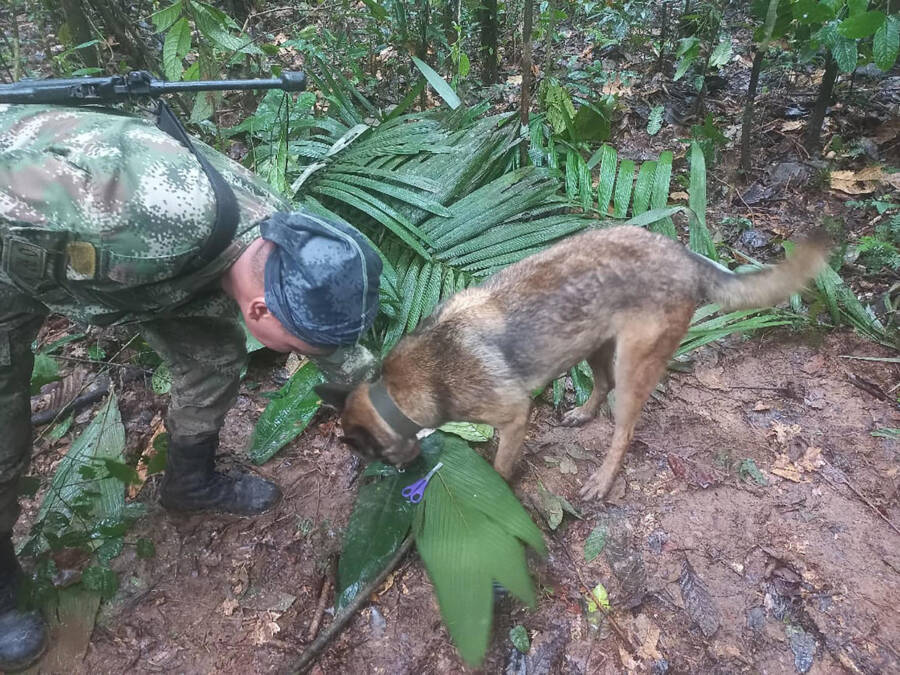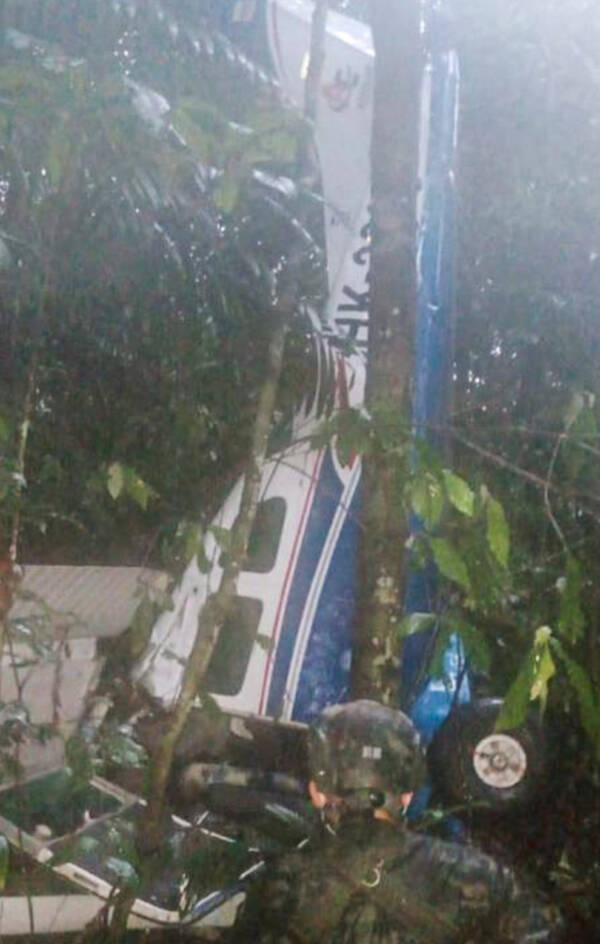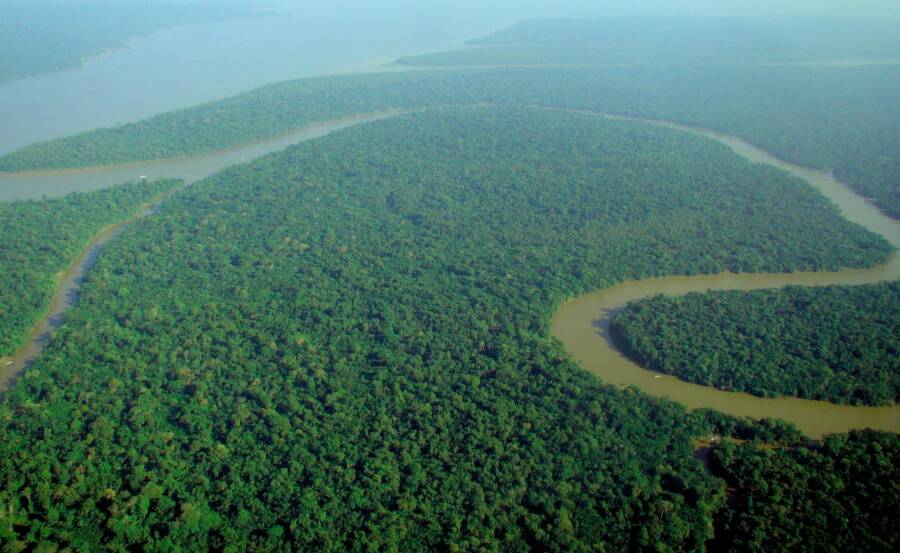The children, whose ages range from 11 months to 13 years, were allegedly found by indigenous people in the rainforest, though officials haven't been able to yet confirm the reports.

Colombian Air ForceA soldier and a search dog examine a pair of scissors which gave searchers hope that the children had survived.
On May 1, a small plane carrying a mother and her four children crashed in the Amazon rainforest. A frantic search turned up the bodies of the pilot, co-pilot, and the mom, but the children were nowhere to be found. Now, reports indicate that the children have been safely recovered.
“After arduous searching by our military, we have found alive the four children who went missing after a plane crash in Guaviare,” Colombian President Gustavo Petro wrote on Twitter. “A joy for the country.” The tweet, however, was later deleted as officials continued to fail to verify the children’s rescue.
The Colombian child welfare agency, ICBF, announced that it received intel from “reliable sources” in the field that the children had been found by indigenous people in the Amazon. Avianline, the company that operated the lost plane, confirmed these reports, as did multiple indigenous radio stations. However, the Colombian military has yet to make contact with the missing children.
“Information was received from the area assuring contact was made with the four children who were part of the group transported on the aircraft,” the ICBF said in a statement reported by the Independent. “This report stated that they had been found alive and in good health. However, the military forces have not yet been able to establish official contact due to adverse weather conditions and difficult terrain.”
The children were passengers on a Cessna 206 light aircraft traveling between the Colombian destinations of Araracuara and San José del Guaviare when the plane disappeared shortly after the pilot reported engine problems. Two weeks later, Colombian soldiers found the plane.

Colombian Air ForceThe Cessna 206 light aircraft which crashed in the Amazon rainforest, killing all three adults on board.
As CBS News reports, the soldiers found the bodies of the three adults, including a 33-year-old member of the Huitoto indigenous group who had been traveling with her four children. But the children, aged 13, nine, four, and 11 months, were not at the scene.
However, soldiers did find some evidence at the scene of the crash, which offered hope that the children had survived.
As the BBC reports, soldiers and search dogs found a child’s drinking bottle, a pair of scissors, a hair-tie, some half-eaten fruit, and what appeared to be a shelter made from sticks and branches.
“We think that the children who were aboard the plane are alive,” Colonel Juan José López said. “We have found traces at a different location, away from the crash site, and a place where they may have sheltered.”
Then, the Colombian military launched “Operation Hope” to try and locate the missing children. The military deployed three helicopters at the scene to overcome difficult search conditions, like dense tree cover and heavy rainfall. They blasted a recorded message from the children’s grandmother, who told them in the Huitoto language to stay put.

Catedral Verde – Floresta Amazonica/Wikimedia CommonsThe Amazon’s thick forests and heavy rainfall made searching for the children difficult, so the military used helicopters to try and tell the children to stay put.
Now, it appears that the saga may have a happy ending, as tentative reports state that indigenous people in the area have found the children. However, Colombian officials have yet to make direct contact with the children. According to the BBC, their recovery may have been delayed by heavy rains, which made navigating rivers by boat too dangerous.
Their father is holding out hope that the children are safe. He told the BBC that his sister got lost in the rainforest for an entire month and managed to survive. And CBS News reports that the children, raised in the Huitoto culture, likely have hunting, fishing, and gathering skills which could have helped them stay alive during their time in the rainforest.
For now, reports state that the children are “being transported by boat downriver and that they [are] all alive.”
After reading about the children who have allegedly been recovered after their plane went down in the Amazon rainforest, discover the story of Juliane Koepcke, who survived falling 10,000 feet into the Amazon after her plane broke into pieces during a storm. Or, see how Jhonatan Acosta survived for a month in the Amazon by eating worms and drinking his own urine.





